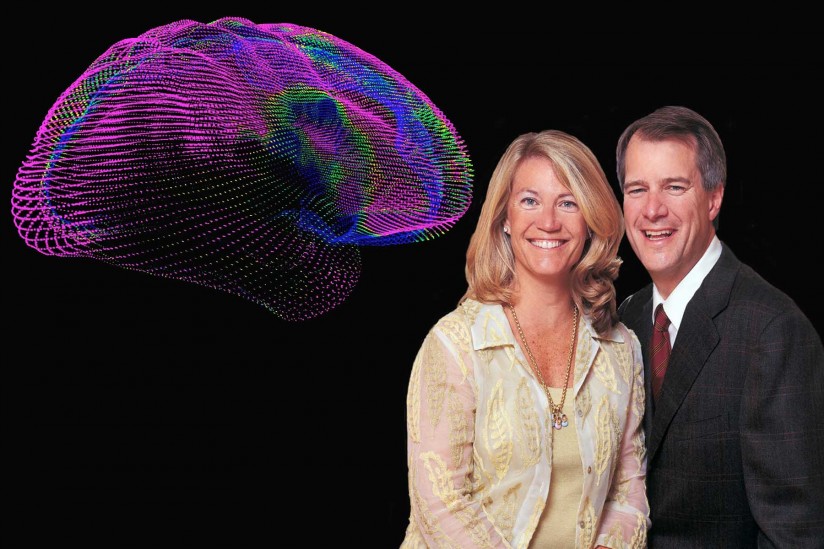A USC alumnus and his wife are donating $50 million to a USC brain research institute to advance progress in understanding one of biology’s most complex and important puzzles: the brain.
The gift from Mark and Mary Stevens will endow and name the USC Mark and Mary Stevens Neuroimaging and Informatics Institute. Located at the Keck School of Medicine of USC on the Health Sciences Campus, the institute partners with schools and programs on both campuses, given the tremendously interdisciplinary nature of its work. In addition to collaborating closely with the USC Viterbi School of Engineering, the institute works with faculty in biology, genetics, biostatistics, computer science, mathematics, pharmacology and numerous other disciplines.
The Stevens’ gift promises to improve the lives of people worldwide by quickening the translation of basic research into new therapies, preventions and cures for brain injury and disease, including Alzheimer’s, schizophrenia and traumatic brain injury.
In an interview with the Los Angeles Times, Mark Stevens said that he and his wife consider neuroscience to be “the next great frontier in medicine and science.”
Stevens said in the interview that he has “a front row seat” to the toll of such neurological diseases as Alzheimer’s, from which his father suffers. “If you look at the spectrum of neurological disorders, I would argue that it touches more families than cancer and heart disease. It touches youth and it touches old age,” said Stevens.
Led by professors Arthur Toga, PhD, and Paul Thompson, PhD, along with a team of more than 130 faculty and scientific staff, the institute and its Laboratory of Neuro Imaging were brought to USC in 2013. Over its three decades, the institute has amassed the world’s largest repository of healthy and diseased brain images, along with medical and cognitive data from around the globe.
“With this landmark gift, Mark and Mary Stevens enhance their already spectacular philanthropic legacy,” said USC President C. L. Max Nikias. “They significantly widen the scope of their support for American higher education and bring their philanthropy to particularly pressing and important areas of inquiry. Neuroscience has been called ‘the final frontier’ in medical science’s progress toward a fuller understanding of human life and human health. Through the Stevens’ support, USC researchers will have the opportunity to address many of the most pressing questions in medicine today.”


